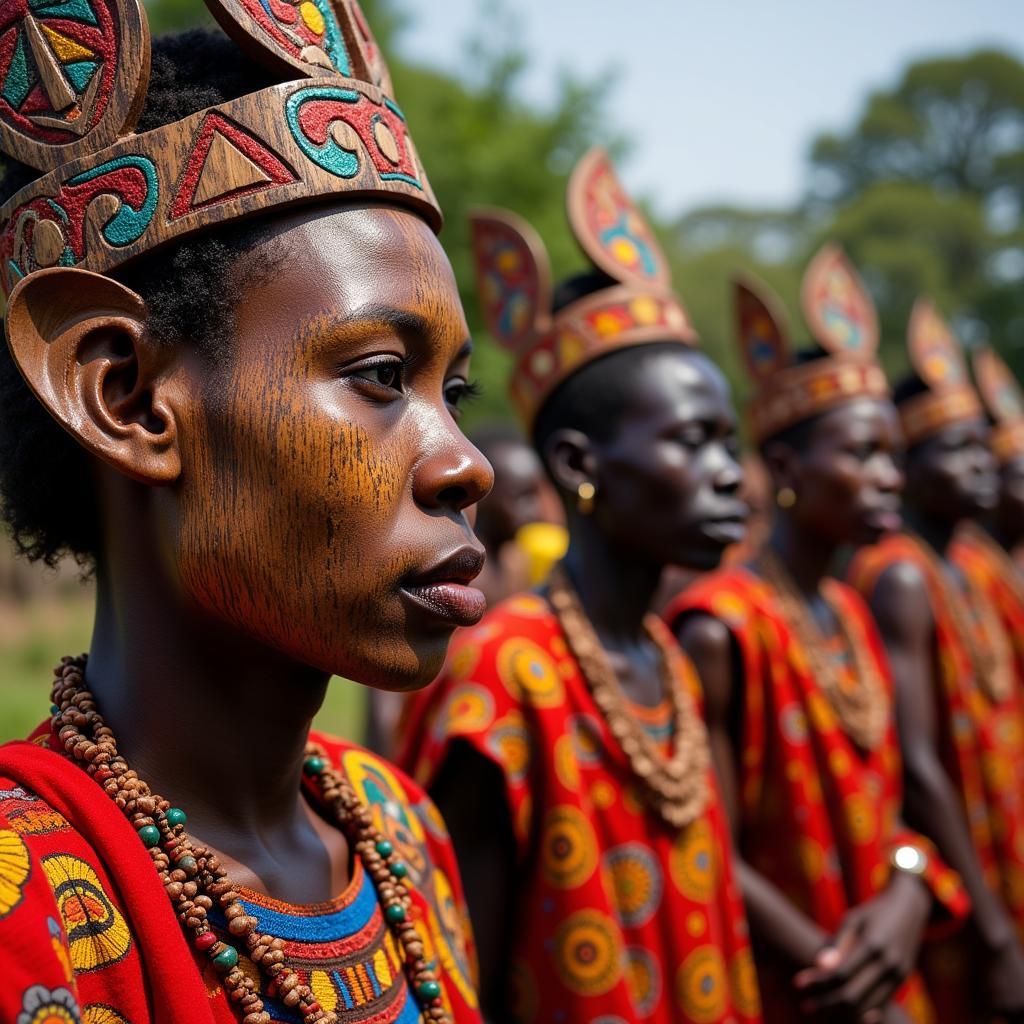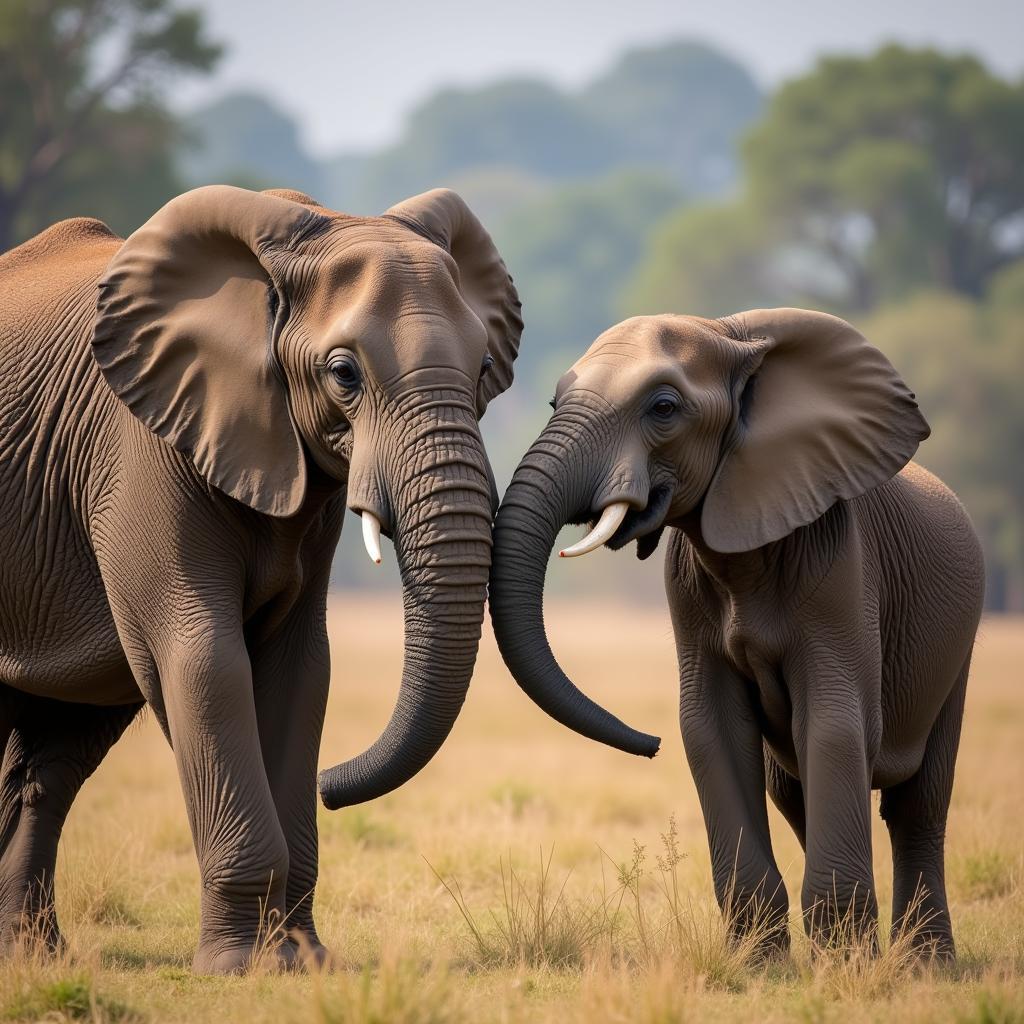The Ultimate Guide to African Cichlid Fish Food
African Cichlid Fish Food is a crucial aspect of keeping these vibrant and diverse creatures healthy and thriving in your aquarium. Choosing the right food can be a daunting task, given the sheer variety of cichlid species and their specific dietary needs. This comprehensive guide will delve into the intricacies of African cichlid nutrition, empowering you to make informed decisions about their diet. We’ll explore everything from the different types of food available to creating a balanced and nutritious feeding plan.
Understanding the Dietary Needs of African Cichlids
African cichlids originate from diverse habitats within the Great Rift Valley lakes, including Lake Malawi, Lake Tanganyika, and Lake Victoria. These different environments have led to a wide range of feeding specializations among cichlid species. Some are herbivores, grazing on algae and plant matter, while others are carnivores, preying on insects, crustaceans, and even smaller fish. Many cichlids are omnivores, consuming a mixed diet. Understanding your cichlid’s natural diet is the first step in providing appropriate nutrition. For example, mbuna cichlids from Lake Malawi primarily feed on algae, requiring a diet rich in plant-based ingredients. Conversely, piscivorous cichlids need a protein-rich diet to support their growth and energy levels. A well-balanced diet for African cichlids generally includes a mix of high-quality commercial food, supplemented with occasional treats.
If your African fish die, it’s important to understand why. Check out this article: african fish die.
Types of African Cichlid Fish Food
Commercial African cichlid fish food comes in various forms, each with its advantages and disadvantages.
- Flakes: A common and affordable option, flakes are readily accepted by most cichlids. However, they can quickly contaminate the water if not consumed promptly.
- Pellets: Generally more nutritious and less messy than flakes, pellets come in various sizes to suit different cichlid species. Sinking pellets are particularly beneficial for bottom-dwelling cichlids. Floating pellets are good for surface feeders.
- Sticks: Designed to mimic the natural prey of carnivorous cichlids, sticks are a good source of protein and encourage natural feeding behaviors.
- Frozen Food: Excellent for providing variety and stimulating natural hunting instincts, frozen foods like bloodworms, brine shrimp, and mysis shrimp are a valuable supplement to a staple diet.
What is the Best Food for African Cichlid Fry?
Newly hatched African cichlid fry require a diet rich in protein for rapid growth and development. Infusoria, baby brine shrimp, and finely ground flake food are excellent choices for fry. As they grow, you can gradually introduce larger food items. Learning about African cichlid fish breeding can help you understand fry care: african cichlid fish breeding.
Creating a Balanced Feeding Plan
Creating a balanced feeding plan is essential for ensuring your African cichlids receive all the necessary nutrients. A varied diet consisting of high-quality commercial food, supplemented with occasional treats, is ideal. Overfeeding can lead to water quality issues, while underfeeding can result in stunted growth and poor health. Feed your cichlids small amounts several times a day rather than one large meal. Observe your fish during feeding to ensure they are consuming all the food within a few minutes.
Looking to set up a tank for a different type of African aquatic life? Consider this: african dwarf frog kit.
How Often Should I Feed My African Cichlids?
Most adult African cichlids should be fed twice a day, while younger fish may benefit from more frequent feedings. Adjust the feeding schedule based on your cichlids’ specific needs and activity levels.
“A diverse diet is key for vibrant, healthy cichlids,” says Dr. Amani Kibwe, an aquatic biologist specializing in African cichlids. “Providing a mix of food types ensures they receive all the essential nutrients for optimal growth and color.”
Conclusion
Choosing the right African cichlid fish food is crucial for their well-being. By understanding their dietary needs and selecting appropriate food types, you can create a balanced feeding plan that promotes healthy growth, vibrant colors, and overall vitality. Remember to observe your fish regularly and adjust their diet as needed to ensure they are thriving in your care. For specific information on different species, see our african cichlid species profiles. If you’re keeping other African fish, you might be interested in african knife fish food.
FAQ
- What are the signs of overfeeding in African cichlids?
- Can I feed my African cichlids vegetables?
- How do I choose the right pellet size for my cichlids?
- What are some good sources of protein for carnivorous cichlids?
- How can I prevent water quality issues related to feeding?
- What should I do if my cichlids refuse to eat a particular type of food?
- How can I tell if my cichlids are getting enough to eat?
For assistance, please contact us at Phone: +255768904061, Email: [email protected] or visit us at Mbarali DC Mawindi, Kangaga, Tanzania. We have a 24/7 customer support team.

